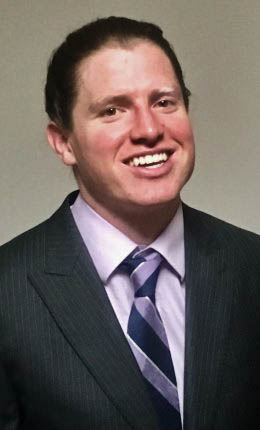
Nicholas Antonellis ’17, MA ’18 has received a $10,000 scholarship from the Directed Energy Professional Society (DEPS). He is one of 14 students in the United States to receive this scholarship from DEPS for the 2017-2018 school year.
To qualify for the award, candidates must be full-time graduate students pursuing studies in directed energy technology areas of high-energy lasers or high-power microwaves. Antonellis wants to use his knowledge in photonic device design and computational simulations to improve medical technologies.
“I am developing skills in the area of electromagnetic theory as well as learning new data analysis and simulation techniques,” Antonellis said in an email to The Argus. “I plan on using these skills to eventually get a Ph.D. and work on something very practical such as electrical engineering with a focus on biomedical technologies. The application of electrical engineering (EE) principles to biomedicine is becoming increasingly important and useful with innovative imaging, diagnosis and treatment options coming from the integration of EE with medicine.”
Drawn to its logic and clarity, Antonellis first became involved with physics in high school.
“After the first day of AP Physics in high school I knew I would wanted to pursue further studies of engineering or physics in college,” Antonellis wrote. “It uncovers secrets of the natural world that have ramifications that affect every academic discipline…. My interest stemmed from this originally, but grew to an interest in generally improving upon technologies that can save and improve lives—especially for those who are suffering.”
At the University, Antonellis pursued research through Foss Professor of Physics Tom Morgan’s Molecular Spectroscopy lab and Professor of Physics, Integrative Sciences, Molecular Biology and Biochemistry, Francis Starr’s Molecular Spectroscopy lab as well. Then, while abroad in Copenhagen, Antonellis was accepted to a 10-week internship at the University of California Santa Barbara as a part of the National Science Foundation’s Future Leaders in Advanced Materials program.
“Essentially I was working on a project that would allow for the miniaturization of larger microscopes, mirrors, and other bulky optical instruments,” Antonellis wrote. “By changing the electric current through micro-resonators we could alter the refractive index and thus change the bulk optical properties of the metasurface allowing for a multifunctional metasurface.”
When Antonellis came back to the University in the fall of 2016, he started working with Professor of Physics, Mathematics, and Integrative Sciences, Tsampikos Kottos, and Roney Thomas, a postdoctoral research associate in the Physics Department.
“His work aims to provide realistic designs of photonic limiters,” Kottos wrote in an email to the Argus. “These are devices that aim to protect sensitive sensors from high power harmful radiation by reflecting this radiation back in space — while at the same time allow low power (friendly) radiation to go through and reach the sensor for further processing.”
Once Antonellis completes his MA, he plans to gravitate from academic research to pursue a job in the industry, whether that be in research or as a consultant. After, Antonellis plans to return to academia to pursue a Ph.D. in engineering or physics.
Kaye Dyja can be reached at kdyja@wesleyan.edu.



Leave a Reply